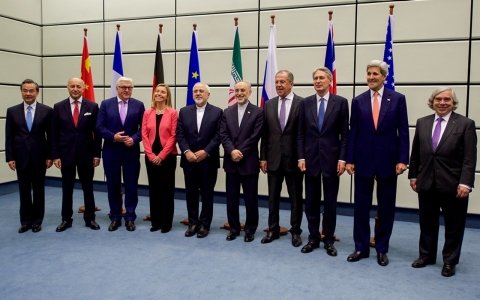Terminating Iran’s nuclear deal: What’s at stake?

The nuclear deal laid the foundation for future diplomacy between Tehran and Washington, while bolstering moderate Iranian leadership at home as well as sending a clear signal to the United States of the worldwide recognition of Iran’s right to civilian nuclear technology. President-elect Donald Trump frequently spoke against Iran’s nuclear deal on the campaign trail, giving a vague ultimatum to the Iranian government that he would roll back the Obama administration’s policy of engagement with Tehran if he becomes the president. To dismantle this hard-won diplomatic achievement, which have benefited not only Iran and the United States, but also the rest of the region, is likely to have disastrous consequences. Two questions worth contemplating at this juncture: (1) how would the new U.S. administration react to the Iran deal? and (2) will terminating the deal benefit the United States over the longer term?
Clearly, walking away from this deal would allow Iran to continue its work on the nuclear program. Moreover, it would be immensely difficult to reconstruct the same economic pressure that brought Iran to the negotiation table in the first place. That campaign, which took ten years of legislative and executive action and pressure, as well as a concerted effort toward outreach to foreign governments, produced an important result—with the added advantage of stability and détente in the region. If the United States were to walk away from the agreement, European and Asian partners would possibly not rejoin any future attempt to impose the same, consistent, and collective pressure on Iran that they have in the near past. Under such circumstances, Iran would be free from any international constraints on its nuclear program while the United States would face a colossal task of mobilizing yet another international campaign to contain or dismantle Iran’s nuclear program.
Furthermore, this posturing by President-elect Trump would strengthen the hard-liners’ hand in Tehran who have consistently questioned the sincerity of the United States in upholding the tenets of the deal. It would be extremely perilous to underestimate Iran’s influence and its ability to deploy her assets effectively in the region. By the same token, Iranian officials should fulfill their end of bargaining as best as they can so that they would diminish any possibility of provocation by the United States. The U.S. Senate’s recent vote (99 in favor and none opposed) to extend American sanctions against Iran until 2026 could alienate the reformist government of Hassan Rouhani and would likely push Tehran toward adopting more conservative—and even radical—measures in the region.
The fact of the matter is that short of going to war or a move to occupy the country, Iran’s nuclear program can be held in check through diplomatic means. The recognition of this reality led the Obama administration to wisely pursue diplomacy with Iran. Any deviation from this path is likely to lead to more tensions in the region—a troubling possibility that would plunge the United States back into yet another unnecessary conflict in coming years. Alternatively, the two countries can collaborate when their interests overlap, particularly in their campaign against the Islamic State in Iraq and Syria (ISIS), yet continue to reasonably compete when their interest may not coincide in other cases.
More paradoxically perhaps is the incoming administration’s seemingly close relationship with Russia, who, under the regime of Vladimir Putin, unequivocally has voiced support for the continued diplomatic nature of engagement. If the United States is to proceed in the vein that Trump has called for, with closer coordination and perhaps a reset with Russia, harming a potentially close Russian ally would seem to make little sense and only exacerbate tension, while obstructing Trump’s diplomatic movements more broadly. Much time was spent on the campaign trail demonizing the nuclear deal, so the bell may already have been rung, but it is more important than ever for the United States, the Middle East region, and the rest of the world, for the effects of positive diplomatic engagements to continue.
Mahmood Monshipouri, PhD, teaches Middle Eastern Politics at San Francisco State University and University of California, Berkeley.
Shirin Jafarinasab Kermani is an undergraduate student in International Relations Department at San Francisco State University.
Leave a Comment